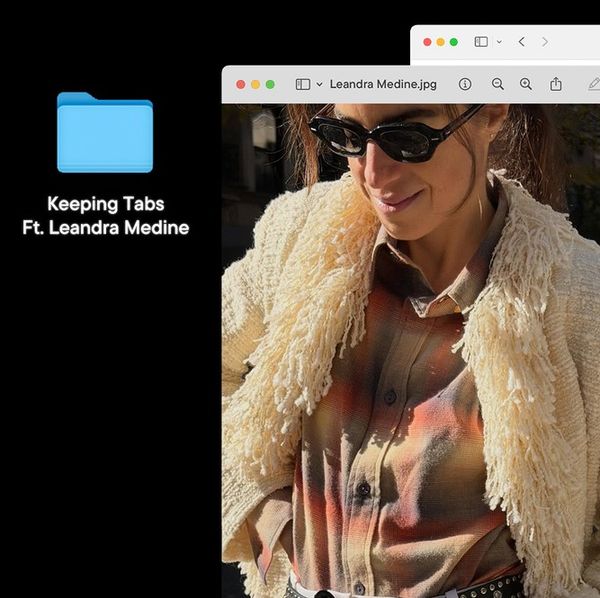Food
Beauty Foods You Need to Have in Your Cupboard
You’ll *actually* be able to say “I woke up like this.”
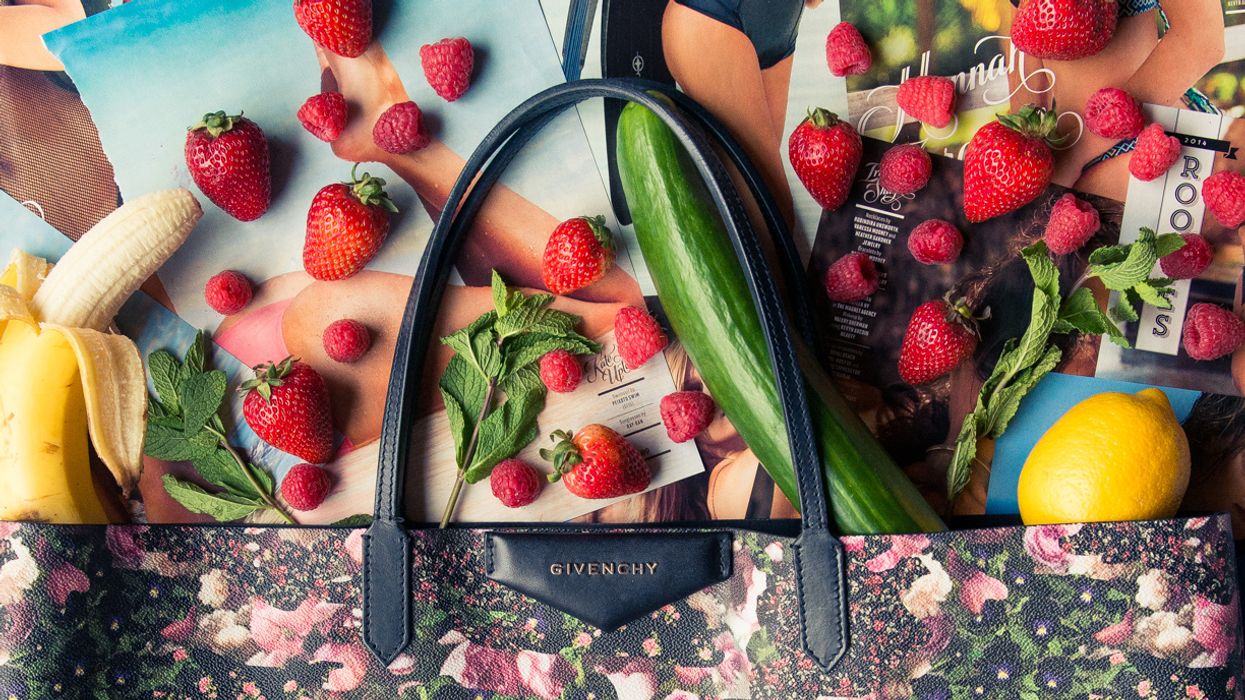
11 November, 2019
10 November, 2021
We’ve all heard the saying “You are what you eat.” So I guess we’re a large, juicy burger with a side of sweet potato fries (extra crispy, of course). Kidding. Sort of. Most of the time we’re living that green and healthy lifestyle. Besides the fact that eating healthy is good for you (duh), we want to know what else healthy foods can do for us beyond *feeling better*. We know that we can eat our way to damn near perfect skin and hair, but what about the dark circles under our eyes and, well, everything else? We want to glow 24/7, so we turned to Tipper Lewis, Neal’s Yard Remedies’ herbal naturopath, for some answers.
Have your eyes shine bright like a diamond
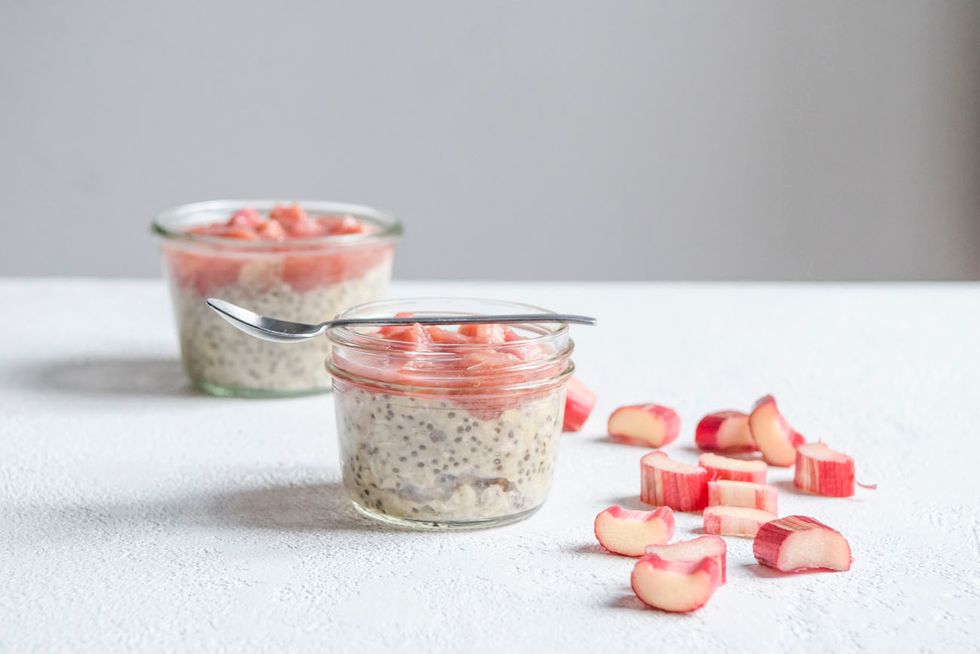
“Key nutrients to keep the eyes healthy are vitamin A, especially as beta carotene (think carrots), B vitamins to assist with eye metabolism, antioxidants to protect the fatty acids in the eye. Essential fatty acids boost eye health—the retina has the highest concentration of fatty acids of any tissue in your body.”
Chia seeds: “Rich in omega 3, with the omega-3 fat DHA being concentrated in the retina. It gives support to cell membranes, boosting eye health and protecting the retina. [Have] up to two tablespoons daily.”
Eggs: “The yolk is a source of both lutein and zeaxanthin, along with healthy fat and protein. Lutein and zeaxanthin are damaged by cooking, so lightly poach or boil your eggs for the best results.”
Blackberries: “[They] contain a special anthocyanin called C3G, [which helps] to protect retinal tissue and pigments from free radical damage, including UV. Include as part of your five a day.”
Chia seeds: “Rich in omega 3, with the omega-3 fat DHA being concentrated in the retina. It gives support to cell membranes, boosting eye health and protecting the retina. [Have] up to two tablespoons daily.”
Eggs: “The yolk is a source of both lutein and zeaxanthin, along with healthy fat and protein. Lutein and zeaxanthin are damaged by cooking, so lightly poach or boil your eggs for the best results.”
Blackberries: “[They] contain a special anthocyanin called C3G, [which helps] to protect retinal tissue and pigments from free radical damage, including UV. Include as part of your five a day.”
So you want your hair to be stronger
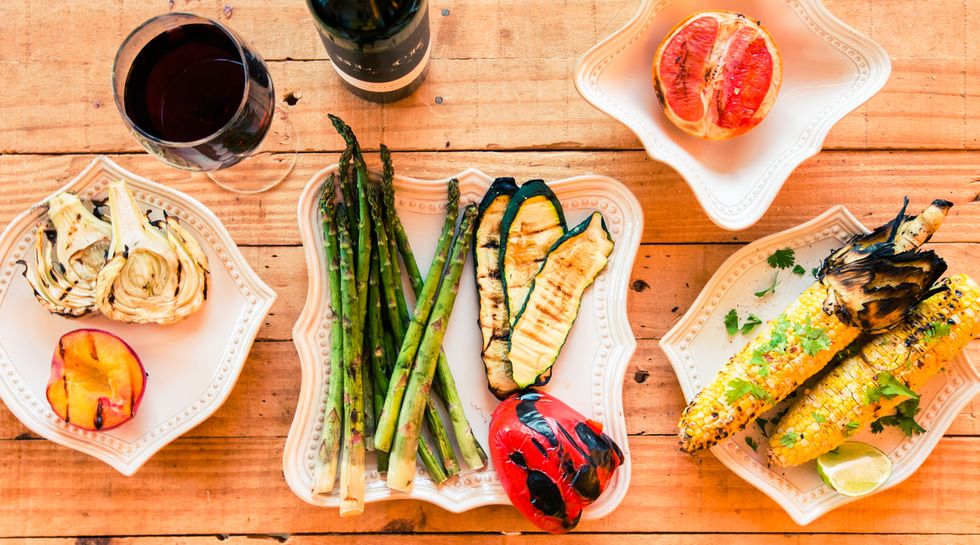
“Nutritional deficiencies from an unbalanced or processed diet, aging, stress, hormonal imbalances, and post-pregnancy can severely affect the hair and scalp. It’s important to take care of the scalp for healthy hair; roots of the hair in the scalp are like plant roots in the soil. It’s very easy to congest the scalp with hair products full of silicone and refined fast foods.”
Antioxidants: “[They] protect the blood capillaries for healthy circulation to the scalp; these come from an array of sources, but think of bright colors like berries and intensely pigmented vegetables.”
Vitamin C: “Berries are also a great source of vitamin C, which is used to form collagen, a structural protein that holds the hair together. Even a small lack of vitamin C can lead to dry hair that breaks easily.”
Protein: “Eat good-quality protein—it’s the building blocks of hair. Insufficient protein can lead to slow and brittle hair growth. It could be vegetarian sources like hemp seeds, miso, and microalgae, or from fish and a little good-quality pork.”
Silica or Silicon: “Essential for the growth of collagen. Silica can help to prevent hair thinning and to restore vitality to hair. Plants are the best sources of silica: wholegrain cereals, apples, cherries, almonds, oranges, fish, oats, and seeds.”
Antioxidants: “[They] protect the blood capillaries for healthy circulation to the scalp; these come from an array of sources, but think of bright colors like berries and intensely pigmented vegetables.”
Vitamin C: “Berries are also a great source of vitamin C, which is used to form collagen, a structural protein that holds the hair together. Even a small lack of vitamin C can lead to dry hair that breaks easily.”
Protein: “Eat good-quality protein—it’s the building blocks of hair. Insufficient protein can lead to slow and brittle hair growth. It could be vegetarian sources like hemp seeds, miso, and microalgae, or from fish and a little good-quality pork.”
Silica or Silicon: “Essential for the growth of collagen. Silica can help to prevent hair thinning and to restore vitality to hair. Plants are the best sources of silica: wholegrain cereals, apples, cherries, almonds, oranges, fish, oats, and seeds.”
Tell your under-eye circles to GTFO
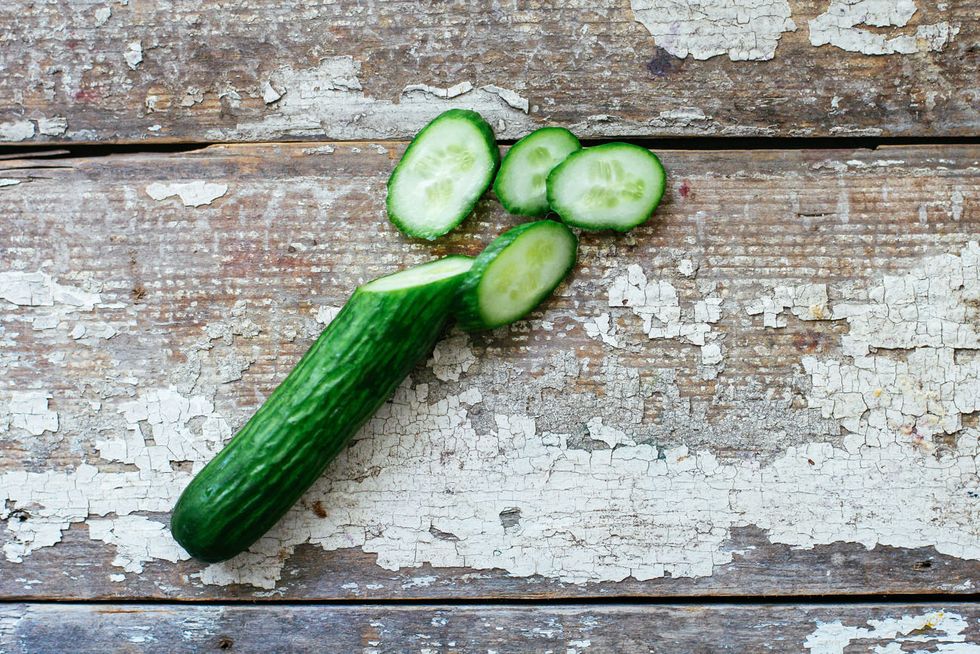
“The skin around the eyes is the most delicate of the body, and as such, is prone to showing changes in our water balance—dehydration makes the skin thinner and the blood vessels more obvious, so we notice dark circles. When the body retains fluid, it can cause eye bags, especially if we’ve had a lot to drink close to bed or have a diet high in processed salt.”
Cucumber: “A great beauty food with a high water content to help rehydrate. Silica [helps to] build collagen and sulphur to strengthen the skin. It also contains vitamin K that helps the elasticity of blood vessels, and multiple beauty-boosting antioxidants like vitamins A, C, and E.”
Watermelon: “At approximately 92 percent water, it helps rehydration and it contains many antioxidants that support eye health.”
Blueberries: “A traditional food for the eyes and a number one food for antioxidants lutein and anthocyanins, that help to protect the delicate blood vessels, improving the circulation to the eyes.”
Goji berries: “Contain an array of potent antioxidants that protect the skin from aging, including a carotenoid that protects and strengthens the tiny capillaries to the eyes. It’s also made up of special sugars that help to keep the skin hydrated. [Have] up to three grams daily.”
Cucumber: “A great beauty food with a high water content to help rehydrate. Silica [helps to] build collagen and sulphur to strengthen the skin. It also contains vitamin K that helps the elasticity of blood vessels, and multiple beauty-boosting antioxidants like vitamins A, C, and E.”
Watermelon: “At approximately 92 percent water, it helps rehydration and it contains many antioxidants that support eye health.”
Blueberries: “A traditional food for the eyes and a number one food for antioxidants lutein and anthocyanins, that help to protect the delicate blood vessels, improving the circulation to the eyes.”
Goji berries: “Contain an array of potent antioxidants that protect the skin from aging, including a carotenoid that protects and strengthens the tiny capillaries to the eyes. It’s also made up of special sugars that help to keep the skin hydrated. [Have] up to three grams daily.”
Get youthful skin
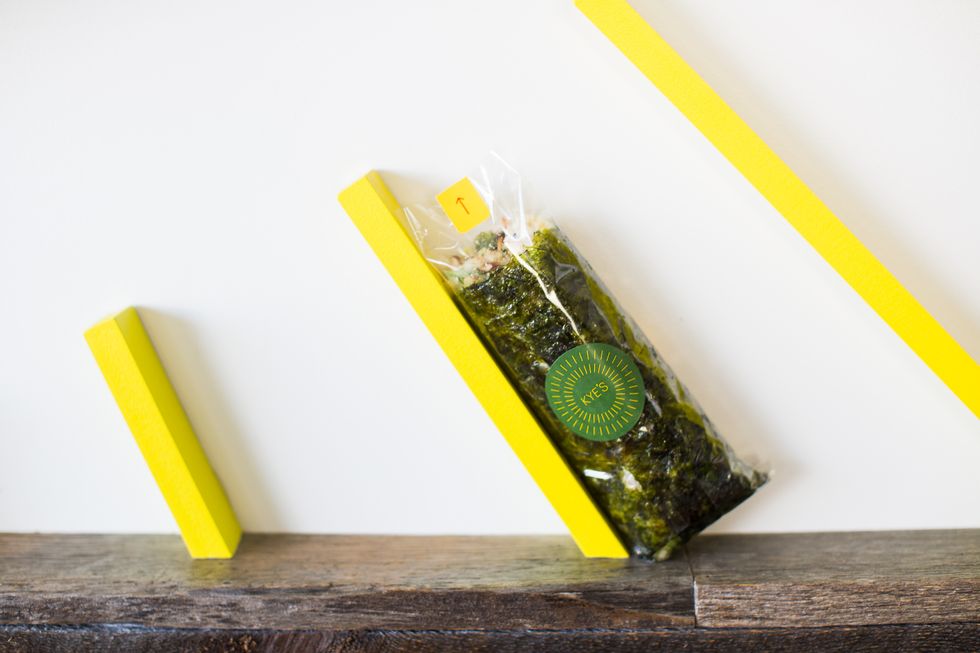
Super Berries: “Goji and mulberry are traditionally used in Asia to keep the skin youthful and moisturized. They contain special sugars that attract water, moisturising from the inside out. In Tibet, goji are known as ‘the elixir of youth’; they’re the only known food that stimulates the youth hormone, which declines with age. Include a small handful as part of your five a day.”
Seaweeds: “By weight, seaweeds are higher in minerals and vitamins than land vegetables, [and] they contain omega-3. A single sheet of nori has the same amount as two avocados, helping nourish and preserve moisture. You can include one teaspoon of dried seaweed daily, or use kelp flakes instead of salt as a seasoning.”
Seaweeds: “By weight, seaweeds are higher in minerals and vitamins than land vegetables, [and] they contain omega-3. A single sheet of nori has the same amount as two avocados, helping nourish and preserve moisture. You can include one teaspoon of dried seaweed daily, or use kelp flakes instead of salt as a seasoning.”
So you can look radiant AF
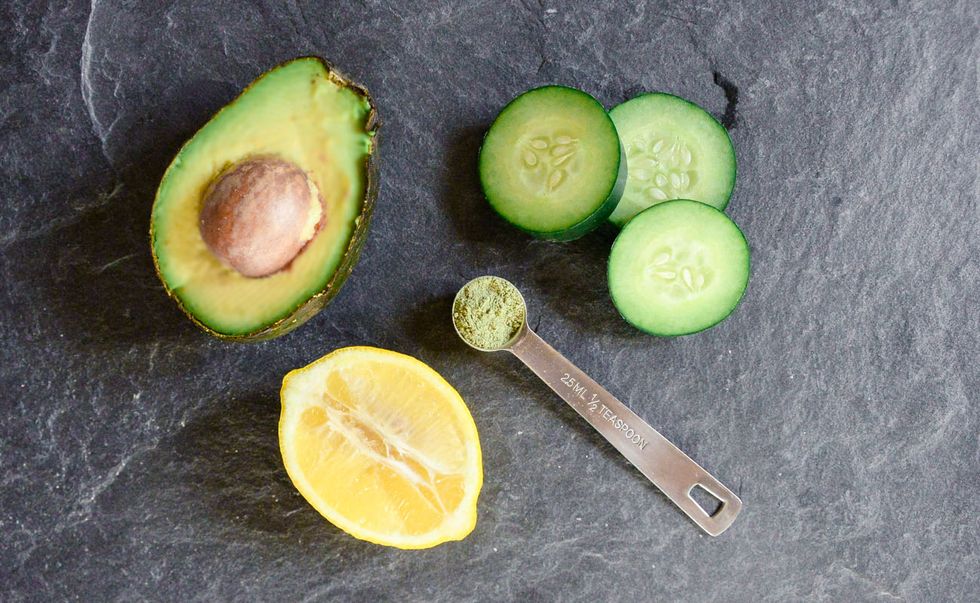
Turmeric: “Traditionally used on the skin by Indian brides to brighten and even the complexion, it contains a powerful fat-soluble antioxidant called curcumin that is also anti-inflammatory. You can increase absorption of curcumin by combining it with black pepper and essential fats, making it a great dressing for meals. Add half a teaspoon to smoothies, juices, soups, or while cooking grains.”
Cayenne: “Powerfully improves the circulation, including the skin’s microcirculation. A simple tip is a glass of warm water first thing in the morning with a pinch of cayenne powder and a squeeze of lemon.”
Kiwi Fruit: “A superb source of vitamin C, improving collagen production, skin texture, and radiance. [Have] up to two to three kiwi daily.”
Avocado: “A well-known source of healthy fats and vitamin E, helping to thin ‘sticky blood.’ Have one medium avocado two to four times per week.”
Want more stories like this?
What to Ask Your Doctor in Your 30s
12 Cleansing & Hydrating Masks for Dewy Fall Skin
Everyone Is Getting Lymphatic Drainage Massages. What Are They?
Cayenne: “Powerfully improves the circulation, including the skin’s microcirculation. A simple tip is a glass of warm water first thing in the morning with a pinch of cayenne powder and a squeeze of lemon.”
Kiwi Fruit: “A superb source of vitamin C, improving collagen production, skin texture, and radiance. [Have] up to two to three kiwi daily.”
Avocado: “A well-known source of healthy fats and vitamin E, helping to thin ‘sticky blood.’ Have one medium avocado two to four times per week.”
Want more stories like this?
What to Ask Your Doctor in Your 30s
12 Cleansing & Hydrating Masks for Dewy Fall Skin
Everyone Is Getting Lymphatic Drainage Massages. What Are They?


